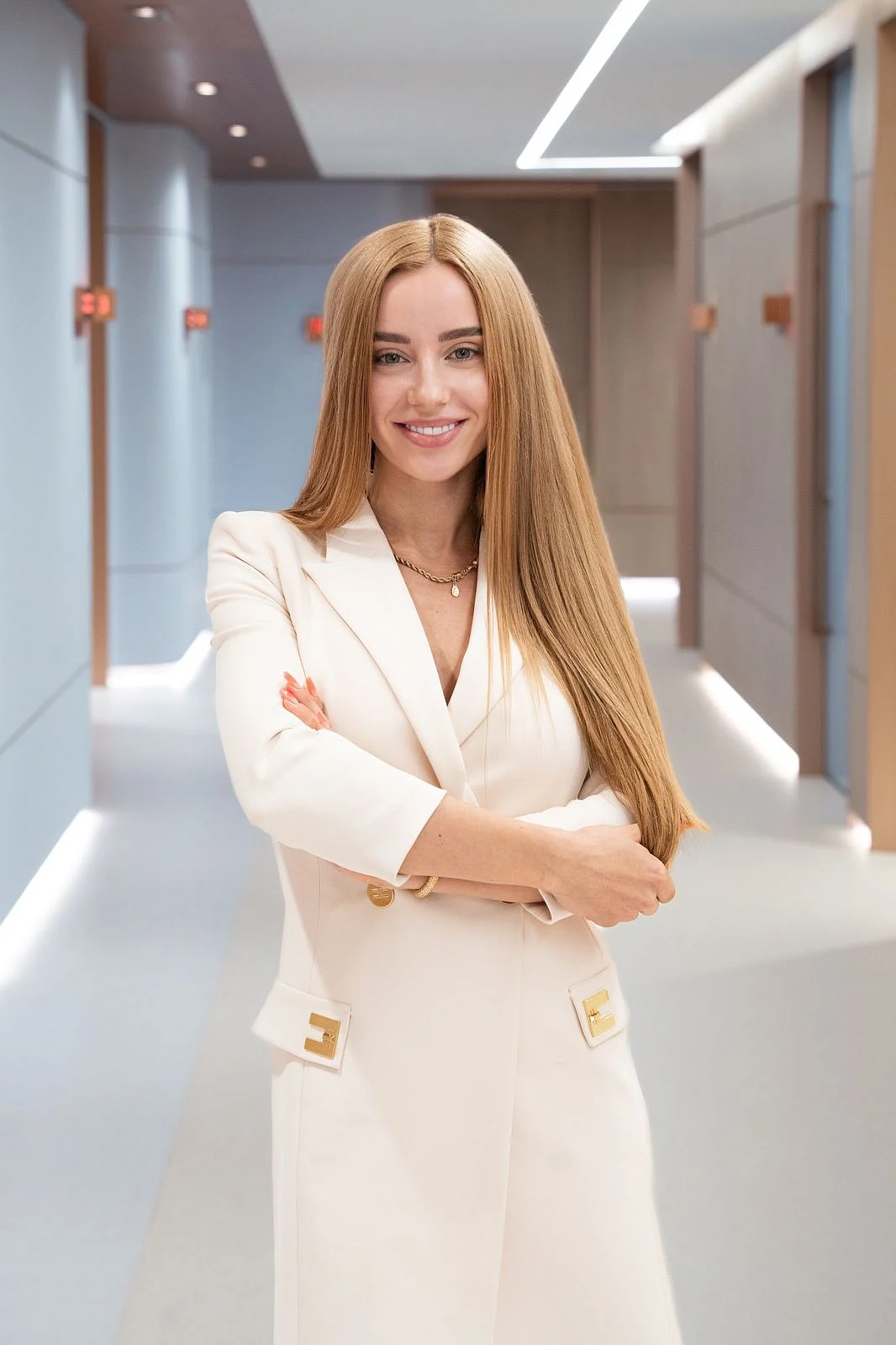Dubai Taught Me To Aim For Excellence, Says Ukrainian Expat
Ukrainian expat Anastasiia Hortman, 30, is the founder of Hortman Clinics in Dubai. She has been in the emirate for seven years and like so many, has found financial freedom thanks to its entrepreneurial culture and her own tenacity.
If you had to use one word to describe money, what would it be?
Recommended For YouTool. Money is not the goal - it's the instrument that helps you get there. It's the means to create, to grow, and to serve. When you understand it as a tool rather than an end, you stop being controlled by it and start using it with intention.
If you had to write a letter to money, what would you say?
Dear Money, we've had a complicated relationship. At first, I chased you out of necessity. I worked tirelessly just to have enough. But as I grew, I realised your real value lies in what you allow me to do - not what you are. You've helped me bring ideas to life, support my family, and create experiences that change lives. Thank you for teaching me discipline, resilience, and how to dream bigger. I don't worship you - I respect you. And I intend to use you wisely.
How would you describe your relationship with money?
Evolving and balanced. Earlier in life, money represented security and independence. Now, it represents freedom and empowerment - not just for myself but also for others. I see it as energy - when you use it in alignment with your values, it multiplies in every way. I have a healthy respect for it, but I no longer let it dictate my decisions or sense of worth.
How do you think this relationship was formed?
From contrast. I've experienced times where I didn't have enough - where every dirham counted. Those moments shaped how I view abundance. I learned early that money must be earned, protected, and directed with care. My journey - from studying, to working, to launching Hortman Clinics - has taught me that financial success follows emotional intelligence and clear vision.
What lessons about money management did you learn from your mother?
My mother was incredibly resourceful. She taught me how to budget and be responsible, even with little. She would save and plan carefully - sometimes too carefully, out of fear. Watching her taught me the value of hard work and frugality. But it also made me realise the importance of balance - of using money to enjoy life, not just to survive it.
Who do you speak to about money matters, and is it something you consider 'taboo'?
I believe in transparency, especially in business. I speak with my financial advisor, legal counsel, and a few mentors who have guided me through major financial decisions. Money is only taboo when we make it emotional or secretive. In business, honesty and clarity are essential. The more we openly discuss money, the smarter and more empowered we become.
Who has taught you the most about financial management?
Experience has been my greatest teacher. Launching and expanding a clinic requires an incredible amount of financial discipline, forecasting, and risk-taking. But I'm also grateful to my financial mentor, who helped me understand how to build a sustainable model.
What has been your most profound experience related to money?
Raising capital and opening my first clinic. Every decision felt like a high-stakes one. I had to make strategic financial calls without knowing the outcome. But that pressure taught me how to trust my instincts, do the maths, and stand behind my vision. Since then, I've learned that when you're clear and passionate, money follows clarity - not desperation.
How has living in the UAE changed your perception of money and wealth?
The UAE is a place of ambition and possibility. Being here has inspired me to think bigger. Wealth here is visible, but it's also earned. I've learned that success isn't just about how much you have - it's about what you create, the impact you make, and the legacy you leave. Dubai taught me to dream with structure and to aim for excellence in everything I do.
How much do you save each month?
I follow a disciplined structure where a fixed percentage of income is allocated to savings, investments, and liquid reserves. It's not about the number - it's about consistency. Saving is a non-negotiable part of my routine.

Legal Disclaimer:
MENAFN provides the
information “as is” without warranty of any kind. We do not accept
any responsibility or liability for the accuracy, content, images,
videos, licenses, completeness, legality, or reliability of the information
contained in this article. If you have any complaints or copyright
issues related to this article, kindly contact the provider above.
Most popular stories
Market Research

- Daytrading Publishes New Study On The Dangers Of AI Tools Used By Traders
- Primexbt Launches Empowering Traders To Succeed Campaign, Leading A New Era Of Trading
- Wallpaper Market Size, Industry Overview, Latest Insights And Forecast 2025-2033
- Excellion Finance Scales Market-Neutral Defi Strategies With Fordefi's MPC Wallet
- ROVR Releases Open Dataset To Power The Future Of Spatial AI, Robotics, And Autonomous Systems
- Ethereum-Based Meme Project Pepeto ($PEPETO) Surges Past $6.5M In Presale






















Comments
No comment